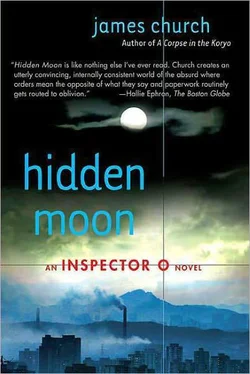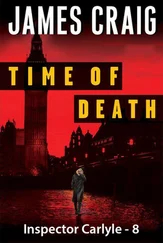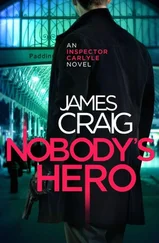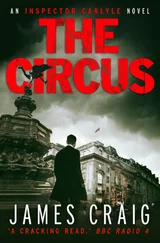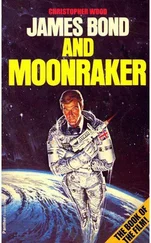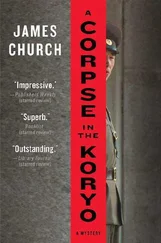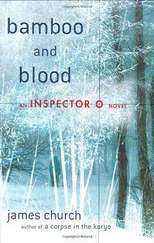James Church - Hidden Moon
Здесь есть возможность читать онлайн «James Church - Hidden Moon» весь текст электронной книги совершенно бесплатно (целиком полную версию без сокращений). В некоторых случаях можно слушать аудио, скачать через торрент в формате fb2 и присутствует краткое содержание. Жанр: Полицейский детектив, на английском языке. Описание произведения, (предисловие) а так же отзывы посетителей доступны на портале библиотеки ЛибКат.
- Название:Hidden Moon
- Автор:
- Жанр:
- Год:неизвестен
- ISBN:нет данных
- Рейтинг книги:3 / 5. Голосов: 1
-
Избранное:Добавить в избранное
- Отзывы:
-
Ваша оценка:
- 60
- 1
- 2
- 3
- 4
- 5
Hidden Moon: краткое содержание, описание и аннотация
Предлагаем к чтению аннотацию, описание, краткое содержание или предисловие (зависит от того, что написал сам автор книги «Hidden Moon»). Если вы не нашли необходимую информацию о книге — напишите в комментариях, мы постараемся отыскать её.
Hidden Moon — читать онлайн бесплатно полную книгу (весь текст) целиком
Ниже представлен текст книги, разбитый по страницам. Система сохранения места последней прочитанной страницы, позволяет с удобством читать онлайн бесплатно книгу «Hidden Moon», без необходимости каждый раз заново искать на чём Вы остановились. Поставьте закладку, и сможете в любой момент перейти на страницу, на которой закончили чтение.
Интервал:
Закладка:
“That’s it?”
“No. Occasionally it gets exciting. Someone needs something. I go and get it.”
“Fine.” Min walked over to my window, which looks onto the front gate and the street. “Don’t tell me what you do.” He turned and stared outside. “Nice view,” he said. He was gathering his thoughts, and I wasn’t expected to say anything. Finally, he turned back to me. “Someone robbed the bank. I think it’s called a ‘heist.’ ” He used an English term, something he rarely did, and then rubbed his broad forehead as he considered whether this was the right word. “Or maybe ‘feist.’ You don’t watch the movies? I thought they had them on all the damn TVs in those fancy hotels in Beijing.”
“I was hardly in the room. The delegation was always in meetings.”
“So it said in your report.”
I let that pass. “To tell the truth, I don’t know what you’re talking about. Have we ever had a bank robbery here? None that I can recall, at least, not since I’ve been in the Ministry.”
“A long time.”
“Too long.” I blew the sawdust off the oak and held it up to the light. Oak takes time getting smooth, especially a piece that has been axed into splinters. Even under the best circumstances, you have to be relaxed to tackle oak. If you also have to restore a sense of dignity to the wood, to coax it back to life, that takes even more concentration. If you’re not feeling patient, my grandfather would say, leave oak alone. I looked up again at Min. He didn’t look patient.
“There’s nothing in the training manual about bank robberies.” I pointed at the green-covered book on the floor behind me. It had been there when I came into the office years ago, and there had never been a reason to disturb it. “That means no standard procedures, no approved plan of operations. I wouldn’t know where to start.” I turned the piece of wood around a couple of more times in my hand and then tossed it into the out-box. “In fact”-I smiled because it was almost true-“I’m not even sure where the bank is.”
Some people might have frowned. Min’s expression didn’t change. Instead, he clasped his hands behind his back and began a familiar ritual, pacing in front of my desk. Since he became chief inspector two years ago, the rhythm never varied, spring or winter, sunshine or rain. Four steps up, a slow turn, a glance out my door into the empty hall, then four steps back. Two revolutions, never three, then he would speak. “Don’t play dumb, Inspector. The bank is in your district. You drive by every day, and you know it. The Ministry says this needs to be solved quickly or it will scare away foreign investors. Our job is to keep them safe and happy. If we become known as a country where bank robberies go unpunished, investment will dry up, the flow of good things to those for whom good things are required will slow, and the Ministry of People’s Security will be blamed.” He stopped pacing and gave me a meaningful look. “Obviously, the Minister’s head is on the line.”
“Aha, the main point.”
“No, Inspector. Not the main point.” He started moving again, but more slowly, more deliberately. If he resumed pacing, it usually meant the conversation would be extended. “The main point is…”
“Why don’t you sit down, Min?” I pointed to a chair.
This time he did frown, slightly. He didn’t like to sit in my office; he thought it broke the sense of hierarchy, what little we had. Frowning or not, at least he was standing still. “The main point,” he said, “is that I want the crime solved. Yes, I’ve been away on other business for the past week, but I’ve not been idle. I’ve been in meetings.” The silence was heavy. I let it sink, content to wait for Min to turn, look out the door, and then finish his thought. “Important meetings.”
“Bank robberies,” I said, “are rarely solved. Certainly not in meetings, however important.” The phrasing was delicate because there was no sense antagonizing Min over this point. He thought meetings were a key to the well-being of the office. To me they were a waste of time. We chalked it up to personal style, though I suspected it was something more, a character defect on his part.
“So! You are familiar with bank robberies. I thought you didn’t know what I was talking about. No movies, you said.”
“Not from movies, from television, which I watch at the Foreign Ministry to keep up on the foreign news. We have to go there since-just to remind you-all we have in this office is a radio. A radio with bad reception, to say nothing about the choice of programs.” I watched the complaint walk out the door, without Min even nodding in its direction. “From what I’ve seen, every civilized country has bank robberies. It helps the circulation of money, one theory goes. You never heard of Robin Hood? Or John Dillinger?”
“Why are you hanging around the Foreign Ministry? You have no business there these days.” Min sniffed the air suspiciously. “Do you?”
“Liaison.” It was the right response. The chief inspector likes to hear we are being modern, keeping up contacts with other departments, studying the latest international police techniques, learning the jargon. He grunted, so I continued. “The liaison officer has a TV in his office. Some ministries do actually supply equipment to their people.” I looked around my office to indicate where there was space for a television. “I don’t know what he watches most of the time, but you can hear him switching to the news when he thinks someone is coming down the hall.”
Min looked at me, then at my out-box, then turned without a word and walked back to his office. I closed my eyes. It was a wonderful spring day, the first Friday in an April of peace and calm; the air was fresh, the trees were budding, and I had nothing to do. My phone rang. It was Min. “Wake up and get in here. We need to talk.” He lowered his voice. “Who is this Di Lin Ger character?”
4
Min was leaning back in his chair, fingers laced behind his round head, his eyes half closed. With anyone else, this posture might have been a show of dominance, a touch of boredom to signal supreme disinterest in any conversation we were about to have. That wasn’t Min’s style. In all the time we’d worked together, he had never been overweening. Twenty years ago, when he was promoted to senior inspector, he pretended it didn’t mean anything and was careful never to let his old friends think his nose was in the air. When the Ministry was reorganized and he was handed the job of my unit’s chief inspector, he waded in carefully. For several months, he didn’t rearrange the pictures on the walls of his office; he even left the old calendar up well into the new year, just to make the point he was not trying to clean house. Min was not a man impressed with his own authority. This is why I liked him, for all our differences. His heart was in the right place, and that counted for something.
Though he never said so, I knew that Min had not expected to rise this far in the chain of command. He never would have but for the death of my former chief, Pak Su In, shot four times in a short, deadly gun battle with a Military Security squad that didn’t know he was armed and suffered its own casualties as a result. The incident, which officially never happened, led to the dismissal of the elderly Minister of People’s Security. The Minister’s replacement, a much younger man who never offended anyone in his life, was ordered to find someone to fill Pak’s vacant post, and to make sure-very, very sure-it was someone with no hidden strengths. Min was a realist. He knew why he had been picked, and he never pretended otherwise.
On one thing, though, Min did place modest emphasis, the prerogatives of his title, and here I did not fault him. Deference to a title was important, he said, because if we in the frontline Ministry offices did not observe a clear hierarchy and sense of order, how the hell could the people on the streets be expected to do so? Ritual, he liked to say, was the basis of civilization; a system of beliefs was what separated man from other animals. The phrase “other animals” came out with a certain grim satisfaction.
Читать дальшеИнтервал:
Закладка:
Похожие книги на «Hidden Moon»
Представляем Вашему вниманию похожие книги на «Hidden Moon» списком для выбора. Мы отобрали схожую по названию и смыслу литературу в надежде предоставить читателям больше вариантов отыскать новые, интересные, ещё непрочитанные произведения.
Обсуждение, отзывы о книге «Hidden Moon» и просто собственные мнения читателей. Оставьте ваши комментарии, напишите, что Вы думаете о произведении, его смысле или главных героях. Укажите что конкретно понравилось, а что нет, и почему Вы так считаете.
